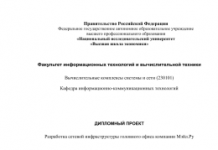Emirates, the UAE-based multinational airline, has announced a significant partnership with OpenAI to integrate artificial intelligence solutions across its operations. This collaboration signals a major push toward enterprise-level AI adoption in the Middle East, where technological investment is rapidly increasing.
Strategic Investment and Regional Trends
The partnership is not isolated. The UAE is also reportedly considering a substantial investment – potentially up to $50 billion – in Canada, as outlined by Reuters. This move demonstrates the region’s broader strategy to diversify its economic interests and leverage international tech hubs. Qatar is simultaneously strengthening AI education initiatives for small and medium-sized enterprises (SMEs), according to The Peninsula, indicating a holistic approach to AI readiness at both corporate and educational levels.
Implications for Business and Government Leaders
This convergence of developments is crucial for technology, business, and government leaders in the Middle East. The rapid integration of AI is no longer a future trend but an immediate reality. Emirates’ partnership with OpenAI will likely set a precedent for other major corporations in the region, prompting accelerated AI implementation across sectors such as logistics, customer service, and data analytics.
Podcast and Voice Cloning Experimentation
The news was initially delivered via the “Middle East AI News Minute” podcast, hosted by Carrington Malin. Notably, the podcast itself is an experiment in AI-generated voice cloning, with admitted imperfections in pronunciation (particularly for Arabic terms). This transparency highlights the evolving nature of AI tools, even in their early stages, and the challenges of achieving seamless linguistic accuracy.
Conclusion
The combination of corporate investment, government initiatives, and experimental AI applications underscores a clear trajectory: The Middle East is aggressively positioning itself as a key player in the global AI landscape. These developments are not just technological; they are strategic moves to ensure economic competitiveness and leadership in the coming decade.


































